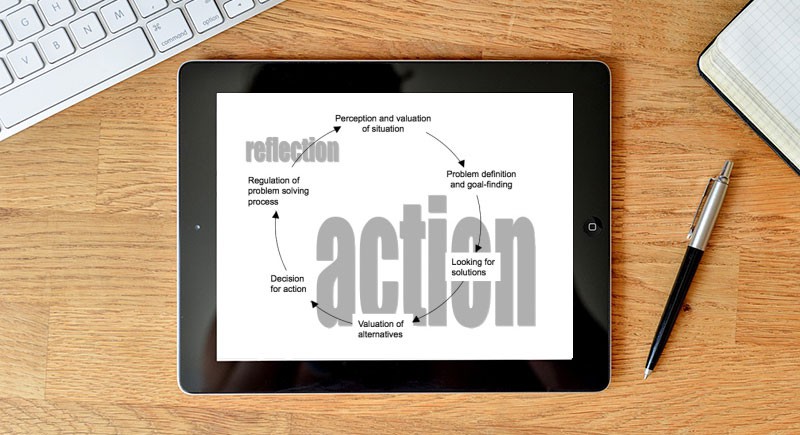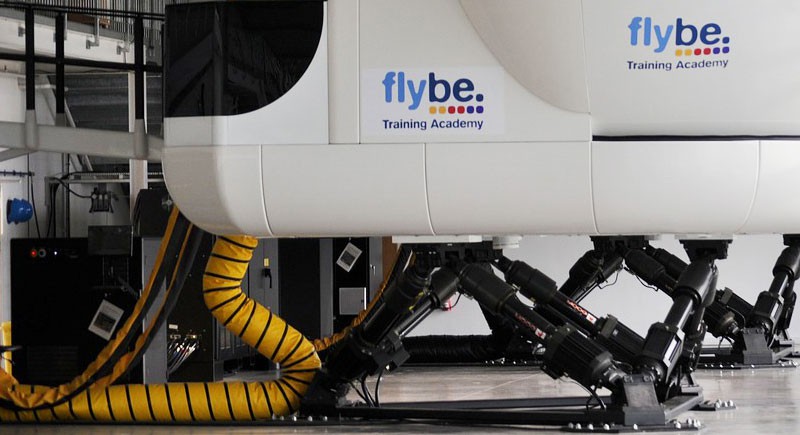Teaching and instruction / video-based classroom research:
Scholkmann, A., Siemon, J. Boom, K.-D. & Knigge, M. (2017). Lernzeitnutzung im Planspielunterricht. Eine Analyse des Einflusses kognitiver Fähigkeiten, Zielorientierungen und Charakteristika von Lernpartnern anhand von Videodaten. [Time on task during game-based learning. The effects of cognitive skills, goal orientations and the characteristics of learning partners – an analysis based on video data.] In: Zeitschrift für Erziehungswissenschaft. Available online. DOI: 10.1007/s11618-017-0736-4
Siemon, J., Scholkmann, A., Paulsen, T. (2017). Coding Manual. Types of teacher supportive behaviour. German and english version available online.
Siemon, J., Scholkmann, A., Boom, K.-D., & Knigge, M. (2015, Januar 6). Kodiermanual Lernzeitnutzung (Time on Task). Zur Analyse von Schülerverhalten anhand von Videodaten [Coding scheme time on task for video-based analysis of student behaviour]. German version available online: Siemon et al. 2015_Kodiermanual Lernzeitnutzung
Knigge, Michel; Duarte, Joana; Nordstrand, Vibeke; Siemon, Jens; Stolp, Claudia (2013): Videostudien als Mittel fachdidaktischer Erkenntnisgewinnung [Video studies as a method of instructional knowledge-production]. In: bwpat (24). German version available on http://www.bwpat.de/ausgabe24/knigge_etal_bwpat24.pdf.
Knigge, Michel; Siemon, Jens (2013): Der Einsatz von Video in Forschung und Lehre hat ein neues Niveau erreicht [The use of video in research and instruction has reached a new level]. In: Gruppendynamik und Organisationsberatung 44 (3), S. 241–243. DOI: 10.1007/s11612-013-0220-4 .
Knigge, Michel; Siemon, Jens; Nordstrand, Vibeke; Stolp, Claudia (2013): Eine neue Methode zur Untersuchung von Mikroprozessen in Lerndyaden: Eine Videostudie unter Berücksichtigung von kognitiven Grundfähigkeiten und Zielorientierungen [A new method for analyzing micro processes in learning dyads: A video study considering cognitive competences and goal orientations]. In: Gruppendyn Organisationsberat 44 (3), S. 277–299. DOI: 10.1007/s11612-013-0219-x .
Simulations for instruction and learning
Siemon, Jens (2015): Lessons learned on simulation-based learning. In: Mercè Gisbert und Mark Bullen (Hg.): Teaching and Learning in Digital World: Strategies and Issues in Higher Education: PUBLICACIONS UNIVERSITAT ROVIRA I VIRGILI, S. 93–97. Available online: http://llibres.urv.cat/index.php/purv/catalog/view/155/139/321-1
Stolp, Claudia; Siemon, Jens (2013): Wirkung auf Lernerfolg und Motivation durch Debriefing in Unternehmensplanspielen [Impact on learning success and motivation through debriefing in business simulations]. In: Uwe Faßhauer, Bärbel Fürstenau und Eveline Wuttke (Hg.): Jahrbuch der berufs- und wirtschaftspädagogischen Forschung 2013. Opladen [u.a.]: Budrich; pedocs, S. 99–111. German version available online: http://www.pedocs.de/volltexte/2013/8067, as of 19.11.2013.
Language in vocational education
Siemon, Jens; Kimmelmann, Nicole; Ziegler, Birgit (2016): Sprache in der beruflichen Bildung – Bedeutung, Forschungsstand und Desiderata [Language in Vocational Education – Significance, State of Research and Desiderata], in: Siemon, Jens; Ziegler, Birgit; Kimmelmann, Nicole; Tenberg, Ralf (2016): Beruf und Sprache – Anforderungen, Kompetenzen und Förderung [Profession and Language – Requirements, Competences and Promotion], Stuttgart: Franz Steiner Verlag.
Siemon, Jens; Ziegler, Birgit; Kimmelmann, Nicole; Tenberg, Ralf (2016): Beruf und Sprache – Anforderungen, Kompetenzen und Förderung [Profession and Language – Requirements, Competences and Promotion], Stuttgart: Franz Steiner Verlag.
Duarte, J., Gogolin, I., Siemon, J. (2013). Mehrsprachigkeit im Fachunterricht am Übergang in die Sekundarstufe II – erste Ergebnisse einer Pilotstudie. [Multilingualism in subject-based education at the
transition to upper secondary education – first results of a pilot study]
In J. Erfurt, T. Leichsering & R. Streb (Eds.), Mehrsprachigkeit und Mehrschriftigkeit. Sprachliches Handeln in der Schule. Duisburg:
Universitätsverlag Rhein-Ruhr.
Siemon, Jens; Duarte, Joana; Gogolin, Ingrid (2011): Computer-Based Assessment of Academic Language Skills–the “CALSy”-Tool. In: ICT for Language Learning Conference Proceedings 2011. Milano: Simonelli Editore.
Vocational education in a knowledge-based society
Siemon, Jens; Knigge, Michel; Nordstrand, Vibeke (2013):
Der Einfluss von berufsspezifischem Vorwissen auf die Ausbildungsplatzsuche [The influence previous vocational knowledge has on the search for a vocational training]. In: Karin Wirth, Frank Krille, Tade Tramm und Thomas Vollmer (Hg.): Weiterentwicklung dualer Berufsausbildung: Konsekutiv, kompetenzorientiert, konnektiv. Erfahrungen und Impulse aus dem Schulversuch EARA.
bwpat (Spezial 7). German version available online: http://www.bwpat.de/spezial7/siemon_etal_eara2013.pdf
Siemon, Jens (2010): Berufsausbildung in der Wissensgesellschaft [Vocational training in a knowledge-based society]. In: Andrea Liesner und Ingrid Lohmann (Hg.): Gesellschaftliche Bedingungen von Bildung und Erziehung: Eine Einführung. Stuttgart: Kohlhammer (Urban-Taschenbücher), S. 216–228.


